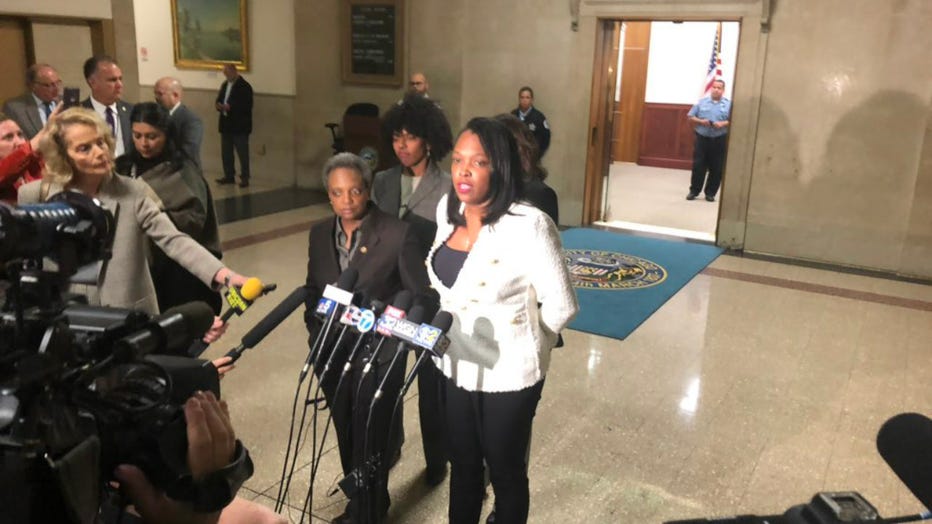Classes to resume Friday after CPS, CTU reach agreement to end strike

Making sense of the deal that ended the Chicago teachers strike
FOX 32 Political Editor Mike Flannery reports..
CHICAGO - Chicago teachers and the nation's third-largest school district reached a labor contract deal on Thursday, ending a strike that canceled 11 days of classes for more than 300,000 students.
Mayor Lori Lightfoot announced that the district had reached a deal with the Chicago Teachers Union after months of unsuccessful negotiations led to the city's first significant walkout by educators since 2012. The union's 25,000 members went on strike Oct. 17, holding marches and rallies across the city.
Chicago Teachers Union delegates voted late Wednesday to approve a tentative deal that includes pay raises over five years, but they initially refused to end the strike unless the mayor added school days to cover the lost time.
The union said Lightfoot had agreed to make up five days of lost time. The school district said classes will resume Friday.

Throughout the strike, Chicago Public Schools kept schools open, promising parents that their kids would have a safe place to go and receive meals. City parks, libraries and community groups also opened their doors to kids whose parents didn't want to leave them home alone but were uncomfortable using schools being picketed by educators.
Families across the city breathed a sigh of relief as they heard the news.
"It is over finally, thank God," said Dominique Dukes, who has two children, ages 7 and 14. "They did miss out on their education. It was the worst experience ever. Hopefully it doesn't happen again."
Dukes, 33, said she printed off grade school worksheets at the library to keep her children occupied. Dukes works early mornings at a warehouse and her boyfriend works nights; they took turns watching the children.
Teachers said the strike was based on a "social justice" agenda and aimed to increase resources, including nurses and social workers for students, and reduce class sizes, which teachers say currently exceed 30 or 40 students in some schools. Union leaders said the strike forced the city to negotiate on issues they initially deemed out of bounds, including support for homeless students.
Lightfoot said a strike was unnecessary and dubbed the city's offer of a 16% raise for teachers over a five-year contract and other commitments on educators' priorities "historic."
The Chicago strike was another test of efforts by teachers' unions to use contract talks typically focused on salaries and benefits and force sweeping conversations about broader problems that affect schools in large, politically left-leaning cities, including affordable housing, added protections for immigrants and the size of classes.
The agreement approved on Wednesday was not immediately released but Sharkey said some of teachers' wins could "transform" schools in the district. The full union membership still must hold a final vote on the agreement.
Broad outlines include a 16% raise for teachers during the five-year contract, a new committee to investigate and enforce classroom sizes that surpass limits in the agreement and funding to add social workers and nurses to the city's schools.
Lightfoot said at the start of the strike that she would not restore any lost days and stuck to that position late Wednesday in response to the union's demands. Lightfoot and Sharkey met privately at City Hall on Thursday as teachers protested outside in the snow. The mayor eventually emerged from her office and announced the strike would end.
Sharkey, who did not stand by the mayor's side to announce the strike's end, told reporters that union members "don't need to see me smiling with the mayor."
"What they need to see if that we have a tentative agreement and we now have a return to work agreement," he said. "I'm glad that people get to return to work. Frankly, it's been hard on teachers to be out this long and it's been hard on parents to be out this long. It's been hard on our students."


